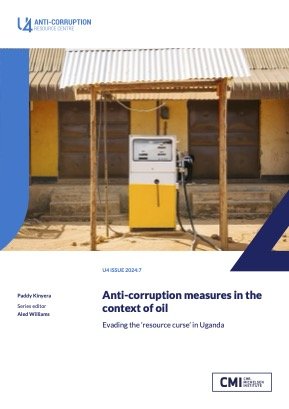By Paddy Kinyera
Uganda’s emerging oil industry could paradoxically undermine its socioeconomic development. This is because of opportunities for corruption, including in project expenditure, procurement, land acquisition, and revenue collection. The government has introduced several anti-corruption measures and other initiatives are attempting to maximise the industry’s benefits while limiting its socioeconomic costs. Further collective actions across government, civil society, and the international community are needed to limit corruption’s impacts.
Main points ▪ Corruption remains a real threat to the oil industry as it is deeply entrenched in the country’s political economy, affecting every sector. ▪ Generally, corruption has become a lucrative venture in Uganda, operated by ‘gainful concealment’. ▪ The oil industry offers rich ground for corruption, as evidenced to date by cases arising from project implementation by private firms. ▪ As part of institutional measures to guard the oil industry against corruption, the government created the Petroleum Fund within the Public Finance Management Act (2015) to prevent mismanagement of oil revenues. ▪ Existing institutions and structures are mainly constrained by bureaucracy, unresponsiveness, disjointed operations, and limits to legal mandates.
U4 ISSUE 2024:7
Bergen: U4 Anti-Corruption Resource Centre , Chr. Michelsen Institute (CMI), 2024. 28p.



